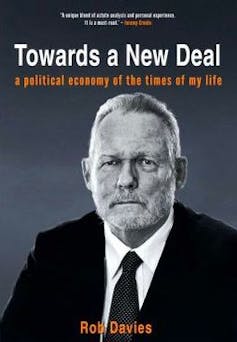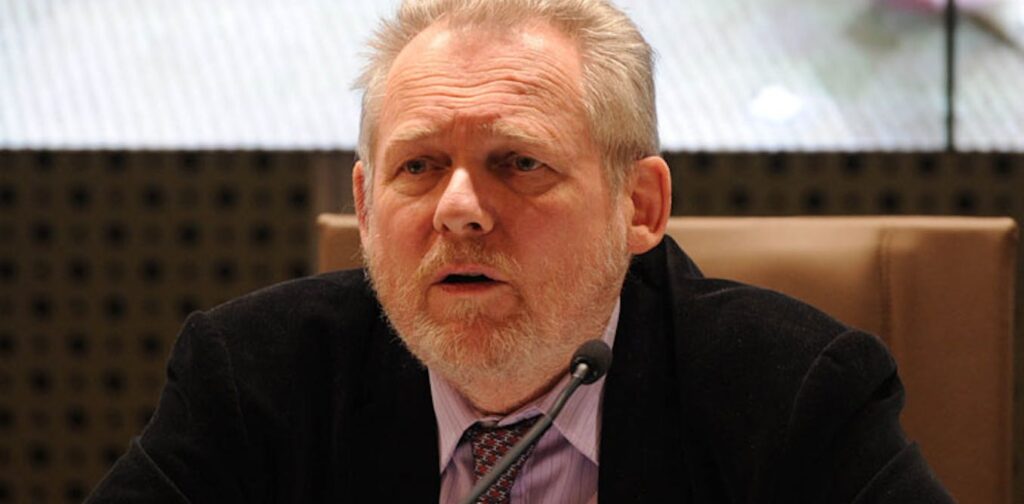A new book by former South African Trade and Industry Minister Rob Davies provides a candid and detailed insider account of the country's post-apartheid political and economic evolution.
He makes it clear from the beginning that this is a memoir, not an autobiography. But as you read on, it becomes clear that it is impossible to separate his personal experiences from the momentous events that shaped democratic South Africa.
The book's 14 chapters cover a variety of topics, including the apartheid situation, the Southern African region, Mozambique's transition to socialism and democracy, and economic policy under President Nelson Mandela's first democratic government. It also covers the significance of the eventful 52nd National Conference of the African National Congress (ANC) in 2007. It focuses on the politics and economics of Cyril Ramaphosa's presidency, as well as trade policy challenges.
Early years and ideology
Early on in the book, readers are introduced to the intellectual ideas that shaped Davis's ideological worldview. His doctoral thesis at the University of Sussex in England examined the relationship between capital, the state, and white workers in South Africa.
Under the guidance of the exiled South African Marxist scholar Harold Wolpe, he became a member of a coterie of theorists and scholars. They had a primarily Marxist orientation and were interested in analyzing the relationship between capitalism and apartheid.
Davis spent 11 years in exile in Mozambique, where he worked as a researcher at Eduardo Mondlane University with anti-apartheid activist and academic Ruth First, gaining first-hand exposure to Mozambique's history and model of socialism. It also deepened his understanding of the Southern African region. He emphasizes the achievements of Mozambican socialism while writing frankly about its failures.
criticize the post-apartheid economy
This book mainly focuses on economic issues. This is not surprising given the author's long history of dealing with economic issues. He recounts in detail the political and social changes that took place in South Africa after his 1994 election that ended apartheid.
He is critical of the economic policies of the first ANC government. He particularly reserves criticism of the Growth, Employment and Redistribution Strategy (GEAR), a macroeconomic policy framework introduced in 1996.
The plan was developed “without prior consultation” with either the ANC's alliance partners, the South African Communist Party and trade union federation Cosatu. Davis laments that GEAR led to the scrapping of the controversial Reconstruction and Development Plan. This radical economic program was designed to redistribute income, wealth, and economic power while stimulating rapid economic growth.
These are legitimate concerns. Others point out that GEAR failed to meet its job creation goals. The desired level of foreign investment was also not achieved. However, his analysis lacks a nuanced understanding of the national context. These include the fact that at the time GEAR was announced, the country was in the midst of a declining currency crisis as international confidence declined. And it does not say whether the policy achieved anything.
Davis believes that the debate that has pitted GEAR's supporters against its opponents could be described as “macroeconomic fundamentalism.” Supporters emphasized the need for macroeconomic discipline. Critics argued that it supported an expansionist, neo-Keynesian economic approach.
What was missing from the discussion was
the constraints imposed by the structural features of the productive economy, the changes taking place within it, and therefore the kinds of transformations required at this level to move to qualitatively different new growth paths capable of addressing the problems; deep involvement. The triple challenge of unemployment, poverty and inequality.
Opportunity loss
Mr Davies argues that the ANC's 52nd conference and the subsequent elevation of Jacob Zuma to the top political office presented an opportunity for fundamental economic change.
The focus was on aggressive trade and industrial policy. These include adopting strategies for benefiting (adding value to mineral resources) and indigenization (designating certain parts of goods to be purchased locally for government infrastructure projects). These policies were touted as central to structural changes in the economy's productive base. These were to be joined by an effective land reform program.

The “developmental trade policy'' set out in several iterations of the Industrial Policy Action Plan will change the economic structure and enable a transition to higher value-added production. It is not clear whether these economic goals have been achieved.
Mr. Davis outlines some policy successes. These include significant investments in the automotive, pharmaceutical and agro-processing sectors. Others include preserving thousands of jobs in the clothing and textile sector. Significant advances were also made in the metalworking industry.
Still, it is questionable whether these industrial policies have succeeded in substantially halting the trend of industrial hollowing out, which has been a drag on the post-apartheid economy.
Davis seems to acknowledge this reality, saying:
We are still far from having a decisive impact on creating the conditions for a new productive, sector-driven, inclusive growth path.
trade diplomat
As a civil servant, he was not only diligent but also had great command of policy and technical details. This became clear when he discussed trade policy challenges. His excellent understanding of the world's political economy and mastery of policy details made him an effective trade diplomat.
His vast knowledge, keen insight and extensive experience served him well. He led South Africa's charge in addressing intractable issues within the World Trade Organization and renegotiating the African Growth and Opportunity Act with the United States. He also led negotiations on the Economic Partnership Agreement with the EU and engaged with counterparts from the Brazil, Russia, India, China and South Africa (BRICS) group.
His concerns about what is hindering progress within the Southern African Customs Union between South Africa, Botswana, Lesotho, Namibia and Eswatini deserve serious attention.
Like his colleagues in the South African Communist Party and Cosatu, Mr Davies initially hoped that the Zuma government (May 2009-February 2018) would usher in a new era of economic and social progress. He is disappointed with the result.
He noted that despite some advances, including in the area of HIV/AIDS policy,
Zuma's presidency has been a highly destructive demobilization of state capacity through rampant dispossession.
Davis cannot separate himself from the historical events in which he has participated. As his previous disgusting interview with the BBC's Stephen Thacker showed, he missed an opportunity to speak out more forcefully against economic mismanagement and state capture.
Significance of books
Overall, this is a thoughtful, well-researched, and informative book. This is a substantial and in some respects original contribution to post-apartheid political and economic literature.
The writing style is a little formal, but it is tempered by interesting anecdotes. This book will be a valuable resource for anyone interested in South Africa's contemporary political economy.

